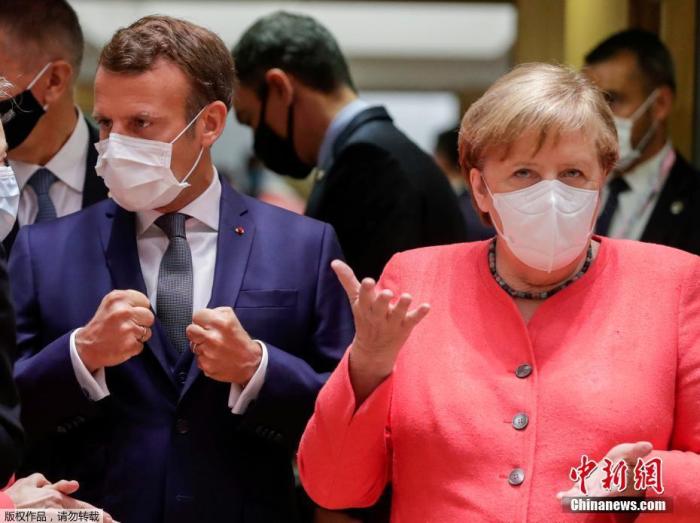Chinanews, July 21st, a comprehensive report, on the 20th local time, the EU summit in Brussels entered its fourth day. French President Macron and German Chancellor Merkel expressed cautiously optimistic views on whether the EU can reach an agreement on the economic recovery plan after the epidemic.
On July 17, local time, in Brussels, Belgium, French President Macron and German Chancellor Merkel attended the EU face-to-face summit.
According to reports, this EU summit was held on the 17th, and it was the first face-to-face meeting between EU leaders since the outbreak of the new crown epidemic in Europe. The meeting was originally scheduled to close on the 18th.
However, because the leaders of the 27 EU countries failed to reach an agreement on a 750 billion euro bailout plan. In the early morning of the 20th local time, Michelle, President of the European Council, announced another extension of the session.
Agence France-Presse reported that French President Macron said when leaders resumed discussions on the 20th that all parties hope to reach a compromise. But he said, “There is no consensus yet, so I maintain a very cautious attitude.”
Macron also said: "There was a compromising mood at the scene. There have been some very tight moments, and there will undoubtedly be some difficult times afterwards."
German Chancellor Merkel also said: "We have set a framework for possible agreements." "This is a progress that gives people the hope that an agreement may be reached today, or at least it is possible to reach an agreement."
According to previous reports, the theme of this meeting is to discuss the EU's budget scale from 2021 to 2027 and a "recovery fund" program totaling 750 billion euros.
According to the proposal, the "recovery fund" will be raised through debt issuance, and a combination of free appropriation and low-interest loans will help countries affected by the epidemic recover their economies.
However, leaders of various countries have different opinions on how to allocate the "recovery fund" and what conditions should be attached to the beneficiary countries. The Netherlands, Denmark, Sweden, and Austria oppose free appropriations and request that aid payments be linked to reform commitments.
However, countries with more severe epidemics, led by Italy, advocate maintaining a funding scale of 750 billion euros, and hope that the part used for free grants will not be less than 400 billion euros. Eastern European countries such as Hungary and Bulgaria oppose linking aid to the rule of law, believing that this is an opportunity to squeeze into irrelevant issues.
According to Reuters news agency, European Parliament Speaker Sassoli said that even if the European Union governments have reached a huge economic stimulus plan, if the plan does not meet certain conditions, the European Parliament will not support it.

